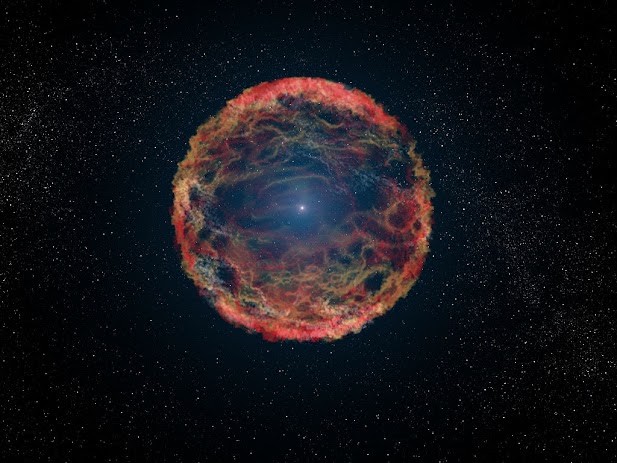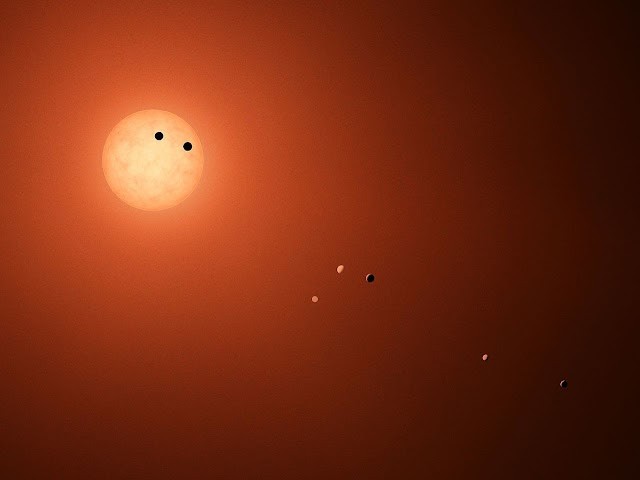A University of Portsmouth physicist has explored whether a new law of physics could support the much-debated theory that we are simply characters in an advanced virtual world.
The simulated universe hypothesis proposes that what humans experience is actually an artificial reality, much like a computer simulation, in which they themselves are constructs.
The theory is popular among a number of well-known figures including Elon Musk, and within a branch of science known as information physics, which suggests physical reality is fundamentally made up of bits of information.
Dr. Melvin Vopson has previously published research suggesting that information has mᴀss and that all elementary particles—the smallest known building blocks of the universe—store information about themselves, similar to the way humans have DNA.
In 2022, he discovered a new law of physics that could predict genetic mutations in organisms, including viruses, and help judge their potential consequences.
It is based on the second law of thermodynamics, which establishes that entropy—a measure of disorder in an isolated system—can only increase or stay the same.
Dr. Vopson had expected that the entropy in information systems would also increase over time, but on examining the evolution of these systems he realized it remains constant or decreases. That’s when he established the second law of information dynamics, or infodynamics, which could significantly impact genetics research and evolution theory.
A new paper, published in AIP Advances, examines the scientific implications of the new law on a number of other physical systems and environments, including biological, atomic physics, and cosmology.
Dr. Vopson, from the University’s School of Mathematics and Physics, said, “I knew then that this revelation had far-reaching implications across various scientific disciplines.
“What I wanted to do next is put the law to the test and see if it could further support the simulation hypothesis by moving it on from the philosophical realm to mainstream science.”
Key findings include:
- Biological systems: The second law of infodynamics challenges the conventional understanding of genetic mutations, suggesting that they follow a pattern governed by information entropy. This discovery has profound implications for fields such as genetic research, evolutionary biology, genetic therapies, pharmacology, virology, and pandemic monitoring.
- Atomic physics: The paper explains the behavior of electrons in multi-electron atoms, providing insights into phenomena like Hund’s rule; which states that the term with maximum multiplicity lies lowest in energy. Electrons arrange themselves in a way that minimizes their information entropy, shedding light on atomic physics and stability of chemicals.
- Cosmology: The second law of infodynamics is shown to be a cosmological necessity, with thermodynamic considerations applied to an adiabatically expanding universe supporting its validity.
“The paper also provides an explanation for the prevalence of symmetry in the universe,” explained Dr. Vopson.
“Symmetry principles play an important role with respect to the laws of nature, but until now there has been little explanation as to why that could be. My findings demonstrate that high symmetry corresponds to the lowest information entropy state, potentially explaining nature’s inclination towards it.
“This approach, where excess information is removed, resembles the process of a computer deleting or compressing waste code to save storage space and optimize power consumption. And as a result supports the idea that we’re living in a simulation.”
Dr. Vopson’s previous research suggests that information is the fundamental building block of the universe and has physical mᴀss. He even claims that information could be the elusive dark matter that makes up almost a third of the universe, which he calls the mᴀss-energy-information equivalence principle.
The paper argues the second law of infodynamics lends support to this principle, potentially validating the idea that information is a physical enтιтy, equivalent to mᴀss and energy.
“The next steps to complete these studies require empirical testing,” added Dr. Vopson.
“One possible route would be my experiment devised last year to confirm the fifth state of matter in the universe—and change physics as we know it—using particle-antiparticle collisions.”
Reference:
Melvin M. Vopson, The second law of infodynamics and its implications for the simulated universe hypothesis, AIP Advances (2023). DOI: 10.1063/5.0173278





